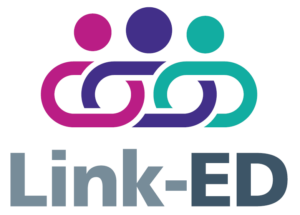Eating Disorders Service (Adult)

Link-ED is the West Yorkshire Tier 2 community adult eating disorders service working with community mental health teams (CMHTs) across Leeds, Bradford, Wakefield, Calderdale and Kirklees. Our role is to educate, train and upskill staff supporting individuals living with disordered eating. We have a clinical pathway providing psychoeducation to people living with disordered eating secondary to their primary mental health difficulties. Our team consists of Dietitians, Occupational Therapists and Registered Mental Health Nurses.
- Referral information
- What happens after you are referred
- Open access pathway – The Hub and our Instagram acount
Referral information
Referrals to Link-ED can only be made by an appropriate healthcare professional working with you in the Community Mental Health Team. For more information about referrals, please visit information for healthcare professionals.
The open access pathway is available to anyone experiencing an eating disorder/disordered eating, whether you have a diagnosis or not. Learn more about our open access pathway.
If you have any further questions or enquiries please email the Link-ED enquiries inbox.
What happens after you are referred
Once your referral has been accepted you will receive information about the support we can offer.
Currently we offer the following:
-
- A welcome check in from one of our clinical leads within the team. This appointment provides us with a greater understanding about your current eating difficulties, enabling us to confirm what support we can offer for you
- CORE groups- we offer an online psychoeducation group space. Groups include Body Image Awareness, Dietetic and Occupational Therapy
- Drop-in clinics- one to one support with opportunity to consider more tailored advice around your personal eating difficulties
- Binge Eating Disorder pathway- Individual support for people experiencing symptoms of/ diagnosed with Binge Eating Disorder. Sessions are facilitated by a Registered Mental Health Nurse, Dietitian and Occupational Therapist
- Individual support- For people who might not be able to attend the CORE group programme
- A summary clinic- one of our clinical leads will meet with you towards the end of your care with Link-ED and signpost for additional support
We work closely with your CMHT team to ensure the care we provide compliments the support you are receiving for your primary mental health difficulties.
Open access pathway
The Open Access Pathway is a collection of resources provided by the West Yorkshire Adult Eating Disorders Services, Link-ED and CONNECT.
The Open Access Pathway does not require a referral, and anyone with disordered eating is welcome to access the resources. Services provided under the Open Access Pathway include the Hub and Twilight Hub support groups, the Carer’s group, and online support via Instagram.
For more information visit the Open Access Pathway page.
Page last updated: 16th Apr 2025 1:37pm